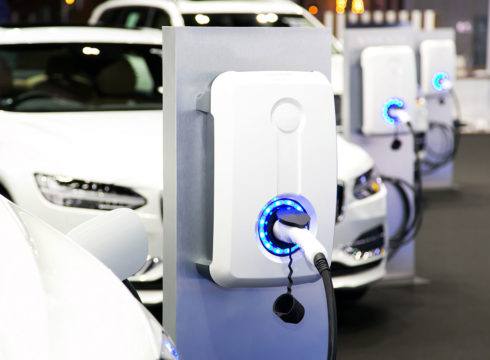SUMMARY
FAME II will include an investment of about $783.65 Mn (INR 5,500 Cr) over five years
An inter-ministerial panel has decided that subsidies will be provided for all categories of electric vehicles
The scheme will provide incentives based on technology
Inc42 Daily Brief
Stay Ahead With Daily News & Analysis on India’s Tech & Startup Economy
After initially categorising subsidies for different electric vehicles under the second phase of FAME (Faster Adoption and Manufacturing of Hybrid and Electric Vehicles) scheme, the government has now finalised the roadmap and has confirmed subsidies for all categories of electric vehicles (EVs), including cars.
The scheme will include an investment of about $783.65 Mn (INR 5,500 Cr) over five years.
An inter-ministerial panel that met on Thursday (August 23) has now decided that subsidies will be available for all categories of electric vehicles — two, three, and four-wheelers — in order to promote green vehicles and check pollution in the country.
Top officials from the ministries of road transport and highways, finance, power, heavy industries, along with other departments including government think tank NITI Aayog, were present at the meeting.
Here are some of the decisions to be implemented under Fame II scheme:
- The scheme will provide incentives, based on technology, to battery-operated scooters and motorcycles in a range of INR 1,800 to INR 29,000
- For three-wheelers, the incentives will range from INR 3,300 to INR 61,000
- The government will not hold back FAME II incentives for private electric cars and SUVs
Talking to Inc42, Varun Mittal, CEO and co-founder, Emflux Motors, a superbike maker, said, “It’s a really good decision. Even though given the segment we are in, we do not necessarily need subsidies to survive, but for mass market EV startups, lack of subsidies would have been disastrous and the EV ecosystem in India would have taken a big hit. I believe that hardware startups (especially EVs) will help make India a manufacturing powerhouse and provide employment to a million people by 2025.”
It is being said that the government plans to offer incentives so that various state-run transport authorities can switch to hybrid and electric buses and a major percentage of new two-wheelers being sold in the country can go electric.
The government’s goal is to drive mass implementation of electric vehicles in the public transport sector.
For this purpose, NITI Aayog has been working to implement electric and hybrid transportation in India. Other stakeholders, including the ministries of road transport, heavy industries, and finance, the GST Council, the National Green Tribunal (NGT), and the Automotive Research Association of India (ARAI) have also been aiding the implementation process.
FAME I And Its Comeback, FAME II
The Indian government launched the FAME scheme in 2015, which expired on March 31, but was later extended by a few months. Inc42 had earlier reported that the Centre was ready to invest $1.3 Bn (INR 9,381 Cr) over five years to roll out the FAME II scheme.
It was also reported that as part of an INR 9,400 Cr package for electric and hybrid vehicles, the government may offer incentives of up to INR 2.5 Lakh to those scrapping old petrol or diesel-fired vehicles. Similarly, buyers of electric cars that operate as taxis are expected to get sops of INR 1.5 to 2.5 lakh for vehicles that cost up to INR 15 Lakh.
Under the FAME India I scheme, the incentive was being offered on purchase of strong hybrid and electric cars, two-wheelers, and three-wheelers; automotive manufacturers claimed the incentive from the government at the end of each month.
Industry experts believe that these subsidies under FAME II and the continuation of the FAME India scheme are extremely important for sustainable development of the EV ecosystem.
The FAME scheme is also essential for the government to meet its target of converting at least one-third of the automobiles on Indian roads to EVs by 2030.
[The development was reported by PTI.]
Note: We at Inc42 take our ethics very seriously. More information about it can be found here.


